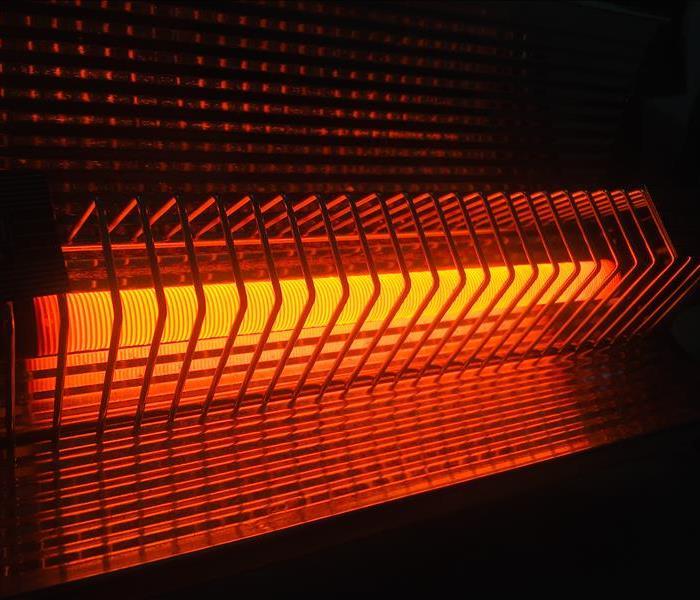Fire Safety With Heating Equipment
10/14/2022 (Permalink)
 Whenever heating equipment is used, fire safety is important to discuss, as even small oversights can result in devastating accidents.
Whenever heating equipment is used, fire safety is important to discuss, as even small oversights can result in devastating accidents.
There’s a chill in the air, which means that it’s getting to be that time of year again when the temperature starts to drop and we start thinking about turning on our home or business’ heating system. Whenever heating equipment is used, fire safety is important to discuss because of the number of fires heating system malfunctions and accidents cause every year. By taking into consideration 3 statistical observations on the subject of heating safety risks from the National Fire Protection Agency, today’s blog will discuss a few different ways in which you can prevent your property from becoming part of the statistics.
An NFPA report on the subject of fire safety with heating equipment, based on annual averages between 2014 and 2018, found that…
1. “Most home heating fire deaths (81%) involved stationary or portable space heaters.”
Keep combustible objects like upholstery and blankets 3ft away from portable heaters in order to decrease fire risks.
2. “The leading factor contributing to home heating fires (25%) was failure to clean, principally from solid-fueled heating equipment, primarily chimneys.”
Solid-fueled heating systems like chimneys should receive annual, professional cleaning services. Having your chimney inspected and cleaned once every year can help decrease your property’s fire risk.
3. “Nearly half (48%) of all home heating fires occurred in December, January and February.”
During the winter, when the weather is cold, it can be easy to want to keep portable heaters turned on 24/7. When you leave the room or go to bed, turn off your portable heaters, as fires can ignite when heaters are unsupervised.
Call SERVPRO Team Wall for Fire Damage Restoration Services
You can find more Fire Tips, as well as more information about our Fire Damage Restoration services and Fire Restoration Process, on our website. This fall and winter, call SERVPRO Team Wall at (717) 510-6779 in the event that your home or business experiences fire damage this fall or winter. Trust us to make it “Like it never even happened.”





 24/7 Emergency Service
24/7 Emergency Service